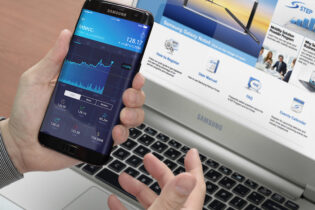How Attached Sales Produce Greater Value for All
Everyone knows the old business adage “It takes money to make money.” The cost of sales is made up of a number of variables – sales salaries, commissions, expenses, and marketing. The cost of sales is also compounded by time: The longer it takes to find and close a sales opportunity, the more expenses increase.
A common problem among business owners and salespeople is balancing the desire to land large accounts and monster deals and the need to string together a continuous flow of small deals that can result in high volumes of revenue over time.
One way of achieving both goals is through attached sales. Whether selling a small, one-time engagement or building a colossal contract, selling more product per sales event accretes greater revenue and produces more profit. The math is simple: If time equals money, more product sold per deal results in higher revenue at a lower cost.
An examination of partner businesses that Samsung conducted with channel research firm The 2112 Group reveals many resellers have the potential for attached sales within and beyond the Samsung product family. In fact, the majority of Samsung partners reviewed are already engaged in multi-product sales.
Samsung partners aren’t selling Samsung products exclusively. They’re selling an array of products from a variety of vendors – everything from security and networking equipment to virtualization software and mobile device management (MDM). They’re complementing tablets, Chromebooks, displays, and digital signage with server virtualization, cloud-based data backup, IT management systems, data networking, servers, and security solutions. They’re rounding out Samsung products with enabling technologies that enhance the total experience and produce a higher value.
Beyond product sales, Samsung partners have an array of professional and managed services. Most offer some form of professional service for guiding technology selection, implementation, and post-deployment support. And the majority provide ongoing monitoring and management of deployed systems ranging from endpoints to backup to storage. In addition, Samsung partners are more frequently offering attached cloud services– applications and infrastructure – that support and enhance the capabilities of PCs and tablets.
Samsung partners don’t necessarily have to look beyond the Samsung portfolio for attached sales opportunities. In education, for example, partners are selling integrated classrooms with Chromebooks, digital interactive whiteboards, and monitors sold as packages. And in healthcare and hospitality, Samsung partners are packaging tablets, monitors, thin clients, and commercial displays as part of integrated systems.
Complex, multiproduct sales don’t necessarily take less time to sell, so it’s wrong to assume that such strategies will result in shorter sales cycles. However, the time spent building and selling an attached-sales deal will often result in higher gross and net revenue. And through attached sales, solution providers can aggregate margins of commoditized and premium products to create a blended profitability model. This approach utilizes lower-margin products as a catalyst for selling higher-value technologies, resulting in a higher aggregated yield.
While thinking about the gross and net revenue yield of individual products is essential, it’s more important to think beyond the product sale, to the totality of a solution. Rarely does one product create a system that has value-producing output. Samsung partners should look at all of the available options and deliver the technology set that generates the best possible outcome. By more effectively solving customer needs, partners will generate greater revenue and returns at a lower cost.







